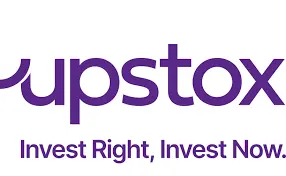Are you holding shares in your demat account but feel stuck when a great trading opportunity comes up and you don’t have enough cash? You’re not alone. Many investors face this challenge. The good news is, with margin against shares trading, you can use the shares you already own to get instant funds for trading-without selling your investments. In this guide, we’ll break down how margin against shares works, why it’s a game-changer, and how the top stock brokers in India help you make the most of this facility.
What Is Margin Against Shares Trading?
Margin against shares is a facility offered by your stockbroker that lets you pledge the shares in your demat account as collateral to get a trading limit or margin. Instead of selling your holdings, you can use them to borrow funds from your broker, which you can then use for trading in stocks, futures & options, or even intraday trades.
- How it works: You pledge your shares with your broker. The broker gives you a percentage of the market value of those shares as margin (usually 60% to 80%, depending on the broker and the stock’s category).
- Interest: You pay interest only on the borrowed amount and only for the days you use the margin.
- No need to liquidate: Your shares remain in your demat account, and you continue to receive dividends and bonuses.
Why Margin Against Shares is a Game-Changer
- Instant liquidity: No need to wait for funds to settle. Get instant margin using your existing shares.
- Don’t miss opportunities: Jump on trading opportunities even if you don’t have enough cash.
- Retain ownership: Keep your shares and enjoy their long-term benefits.
- Flexible use: Use the margin for intraday, delivery, or F&O trades, depending on broker rules.
Top Stock Brokers in India Offering Margin Against Shares
Choosing the right broker is crucial for maximizing your margin facility. Here are the top stock brokers in India known for their robust margin against share services:
| Broker | Margin Against Shares | Interest Rate | Key Features |
| Upstox | Yes | Competitive | User-friendly app, transparent charges |
| Zerodha | Yes | Competitive | Advanced tools, seamless pledging process |
| Angel One | Yes | Competitive | Wide range of stocks accepted, fast processing |
| ICICI Direct | Yes | Competitive | Trusted brand, integrated banking |
| HDFC Securities | Yes | Competitive | Strong research, quick approvals |
Product Introduction: Margin Against Shares by Top Stock Brokers
1. Upstox

Why Choose Upstox?
- Fast-growing broker with modern trading tools.
- Easy-to-use mobile and web platforms.
- Transparent margin policies.
Key Features
- Margin up to 75% of share value.
- Instant margin credit.
- Real-time margin calculator.
Pros
- Flat brokerage charges.
- Fast customer service.
Cons
- Fewer physical branches.
- Margin facility is not available for all stocks.
2. Zerodha

Why Choose Zerodha?
- India’s largest stockbroker with over 7.9 million active clients.
- Offers a simple, digital process for pledging shares.
- Accepts a wide range of stocks and ETFs.
- Transparent interest rates and no hidden charges.
Key Features
- Margin up to 80% of share value.
- Advanced trading platforms (Kite, Coin).
- Free educational resources.
Pros
Popular Discount Broker Upstox
|
- Low brokerage charges.
- Fast margin credit.
- Excellent customer support.
Cons
- Limited offline support.
- Some stocks may have higher haircut rates.
3. Angel One

Why Choose Angel One?
- Trusted by over 7.6 million clients.
- Wide acceptance of shares and mutual funds for margin.
- Strong research and advisory support.
Key Features
- Margin against a large list of approved securities.
- Quick pledge/unpledge process.
- Integrated app for all trading needs.
Pros
- Competitive interest rates.
- Good for beginners and experienced traders.
Cons
- Charges may vary for different segments.
- The app can be overwhelming for new users.
4. ICICI Direct

Why Choose ICICI Direct?
- Backed by a leading private bank.
- Integrated banking and broking services.
- Trusted for safety and reliability.
Key Features
- Margin against a wide range of securities.
- Seamless fund transfer between accounts.
- Strong research desk.
Pros
- Good for large portfolios.
- Easy for ICICI Bank customers.
Cons
- Higher brokerage compared to discount brokers.
- Margin facility may have stricter eligibility.
5. HDFC Securities

Why Choose HDFC Securities?
- Part of the HDFC Bank group.
- Offers robust risk management.
- Easy pledge process for existing customers.
Key Features
- Margin up to 70% of share value.
- Quick approvals and processing.
- Comprehensive trading platforms.
Pros
- Strong brand trust.
- Good for both retail and HNI clients.
Cons
- Higher brokerage fees.
- Margin facility is not available for all stocks.
Comparison Table: Margin Against Shares Facility by Top Stock Brokers
| Broker | Margin % | Interest Rate | Pledge Charges | Platform | Unique Feature |
|---|---|---|---|---|---|
| Upstox | Up to 75% | Competitive | Low | Upstox Pro | Real-time margin calculator |
| Zerodha | Up to 75% | Competitive | Low | Kite | Vast educational content |
| Angel One | Up to 75% | Competitive | Low | Angel One App | Wide range of securities |
| ICICI Direct | Up to 70% | Moderate | Moderate | ICICI Direct App | Integrated banking |
| HDFC Securities | Up to 70% | Moderate | Moderate | HDFC Sec App | Strong risk management |
How to Choose the Best Stock Broker for Margin Against Shares
When picking a stockbroker or sharebroker for margin against shares, consider these factors:
- List of accepted securities: Check if your broker accepts the shares you hold for pledging.
- Margin percentage: A Higher margin means more trading power.
- Interest rates: Lower rates help maximize your returns.
- Pledge/unpledge charges: Some brokers charge a fee for pledging shares.
- Platform usability: A smooth digital process saves time.
- Customer support: Quick help matters when trading opportunities are time-sensitive.
Brokerage charges: Compare minimum and flat fees for trades.
Frequently Asked Questions (FAQs) Margin Against Shares Trading
What is the minimum value of shares required to avail margin against shares?
Most brokers require a minimum portfolio value, often around ₹50,000, but it varies.
Do I lose ownership of my shares when I pledge them?
No, you retain ownership and continue to receive dividends and bonuses.
How much margin can I get against my shares?
Usually between 60% and 80% of the share value, depending on the broker and stock.
Can I sell pledged shares?
Yes, but you must unpledge them first, which can take a few hours.
Is the margin against shares available for all stocks?
No, only for stocks approved by the broker and exchanges.
What happens if the value of my pledged shares falls?
You may need to provide additional collateral or funds, known as a margin call.
Are there any risks in using margin against shares?
Yes, if the market falls, you might have to add funds or risk forced sale of your shares.
Is the interest charged daily or monthly?
Interest is typically calculated daily on the borrowed amount.
Can I use margin against shares for F&O trading?
Yes, most brokers allow it for F&O trades.
Are there any tax implications?
No tax is charged for pledging, but selling shares may attract capital gains tax.
Conclusion: Make the Most of Your Portfolio with Margin Against Shares
Margin against shares trading is a powerful way to unlock the value of your existing investments without selling them. By choosing one of the top stock brokers in India, you can get instant liquidity, seize trading opportunities, and maximize your returns. Always compare the margin percentages, interest rates, and charges before you decide. Ready to boost your trading power? Explore the margin against shares facility with your preferred stock broker or share broker today!
Which broker do you trust for margin against shares? Share your experience in the comments below!
